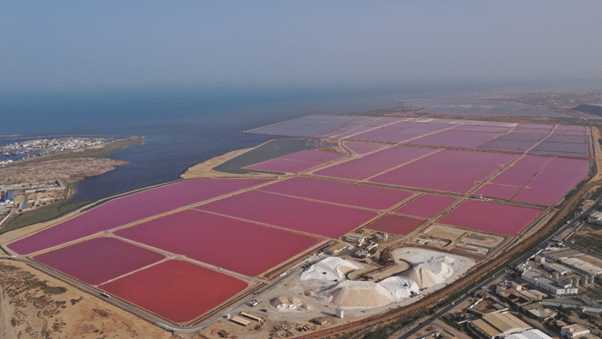In the deserts of the southern Tunisian, a new white gold attracts lusts. It is neither petroleum nor gas, but salts, and more precisely the mineral resources they contain, which today stir up the interest of China. This revival of attention is part of a global Beijing strategy aimed at securing its supply of critical raw materials, essential for its industrial and technological transition.
Tunisia has important salts deposits in the regions of Chott El-Jérid, Tozeur, Kebili and Tataouine. But beyond the kitchen salt, these saline formations hide precious resources such as potassium, bromide, and potentially lithium, key component of electric batteries. If these resources are still little exploited on a large scale, several geological studies suggest strategic potential, especially in the desert areas of the South where the presence of deep brine could reveal interesting concentrations of critical minerals.
China, the world’s leading producer of electric batteries and leader in the fertilizer industry, is faced with an increasing competition to secure access to strategic natural resources. Faced with geopolitical instability in certain areas of Africa or Latin America, Beijing seeks to diversify its supplies and sees in Tunisia a stable platform, close to Europe, providing access to both African and Mediterranean markets.
A partnership that is becoming clearer
In May 2024, during a visit to President Kaïs Saïed in Beijing, the Tunisian and Chinese authorities ratified a reinforced strategic partnership, including increased cooperation in the mining and energy fields. In the process, several Chinese groups, including Asia Potash International Investment, have expressed their interest to invest in the extraction and transformation of Tunisian saline resources. The discussions relate in particular to the installation of production units of phosphate and potassium fertilizers, as well as the exploration of lithium resources in the south.
Beyond the resources themselves, Tunisia offers China a major logistical advantage. Located a few days of navigation from European ports, it represents a potential strategic hub to export finished products to Europe while reducing transport costs. The envisaged construction of the deep waters of Enfidha further reinforces this attractiveness.








